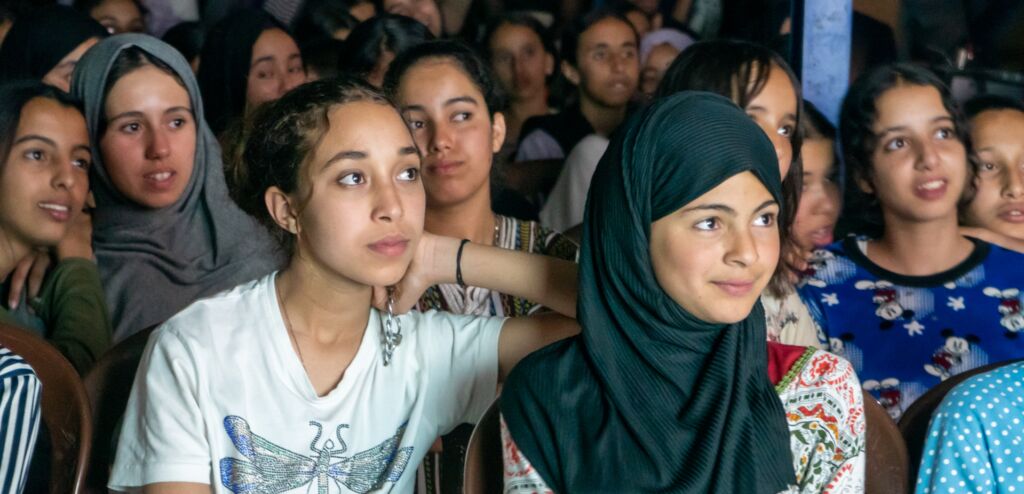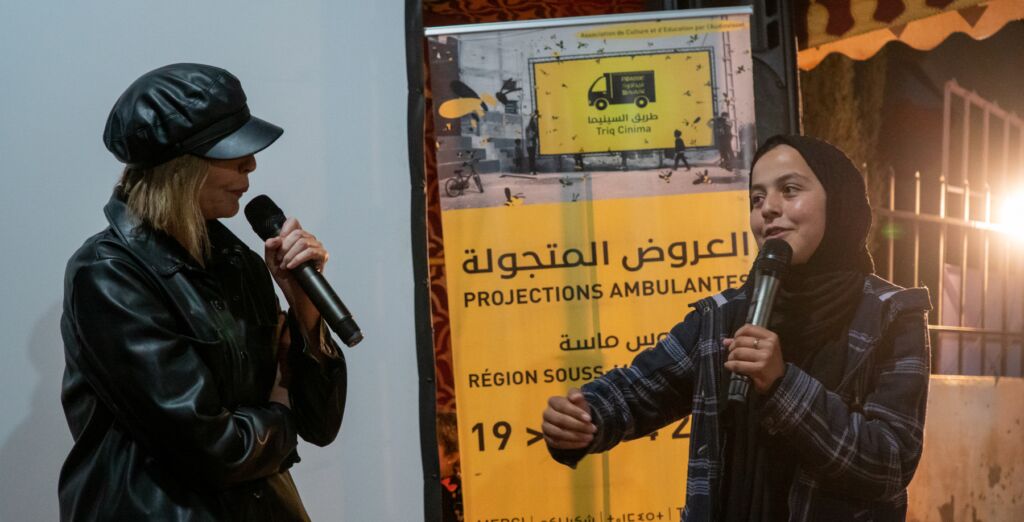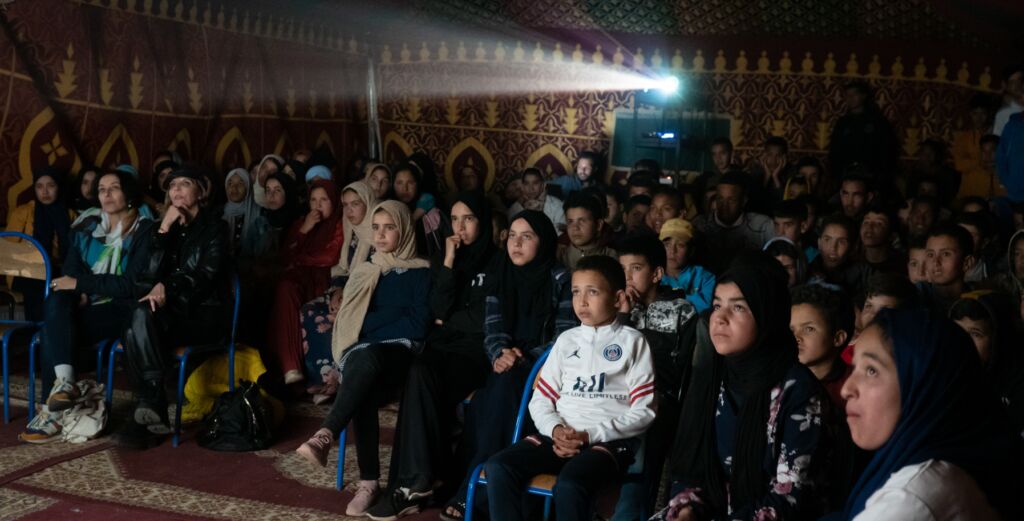Cinema on the road in Morocco
Hicham Falah is the director of human rights film festival FIDADOC, Morocco's oldest documentary festival. We spoke with him about his travelling project, called Triq Cinima ('The Road of Cinema'), which received a start-up grant from Movies that Matter in 2021. 03 February, 2023
Film festival FIDADOC has existed since 2008, making it Morocco’s oldest documentary festival. It takes place every year in and around Agadir, the main city in the south of the country. The films of this festival do not screen in cinemas, but in various locations such as schools, cultural centres, public squares. Since 2018, the festival has also travelled to villages all through the southern region of Souss-Massa. Director Hicham Falah talks about this travelling project, called Triq Cinima (‘The Road of Cinema’), for which the festival received a ‘start-up grant’ from Movies that Matter. Annually, 20 human rights festivals are awarded this financial support as part of the grant programme.

For this project, FIDADOC partnered with organisation Dar Taliba, Arabic for ‘home for female students’. These houses are located near colleges, with the aim of reducing school dropout among girls between the ages of 11 and 16, tells Hicham: “It is compulsory in Morocco to go to school until the age of 16, but outside the city, girls often stop going to school from the age of 12. Schools are far from the village, and parents don’t want to send their daughters there. The Dar Taliba houses provide a concrete and safe solution to this concern. The directors of these houses are very dedicated and often travel to the surrounding villages to convince girls’ parents to send their daughters to school.”
In Dar Taliba homes, people study hard and sometimes play sports together, but there is usually no budget for cultural activities. Often, the residents have never been to the movies. That is why FIDADOC travels to the Dar Taliba with a special film programme. “It is a win-win situation for both,” states Hicham. “We provide the cultural activities; the directors help us pick suitable films and put together the programme.”

The films always end with a discussion with the filmmakers and protagonists. According to Hicham, this is a special experience for both makers and students: “They often cannot imagine how a film was made; that a documentary filmmaker sometimes lives in strangers’ homes for months. One of the films we screened in 2022 is set in a Dar Taliba house with the director as the protagonist. It is special for the girls to be able to recognise themselves in such a film.” One of the most special memories he has of the screenings during Ramadan: “The girls had cooked delicious food. After sunset, we all sat together eating and chatting late into the night.”
By travelling around with the festival, the films, always with a social theme suitable for young women, reach new audiences. When asked what added value these films bring to Moroccan students, Hicham enthusiastically says: “When teenagers start discovering film, they often project themselves in the characters.
The stories inspire and show them what is possible. These girls often haven’t experienced that before.
Film shows that you can make your dreams come true, even if there are difficulties along the way. And maybe some of these women will later become filmmakers themselves.”

The International Support team is committed globally by financially supporting human rights film festivals (Grant Programme), film screenings at embassies (Embassy Film Menu), a programme for activists (Activist Programme), coordinating a partnership between festivals (Human Rights Film Network) and workshop programmes for film festival organisers (Cinema without Borders).